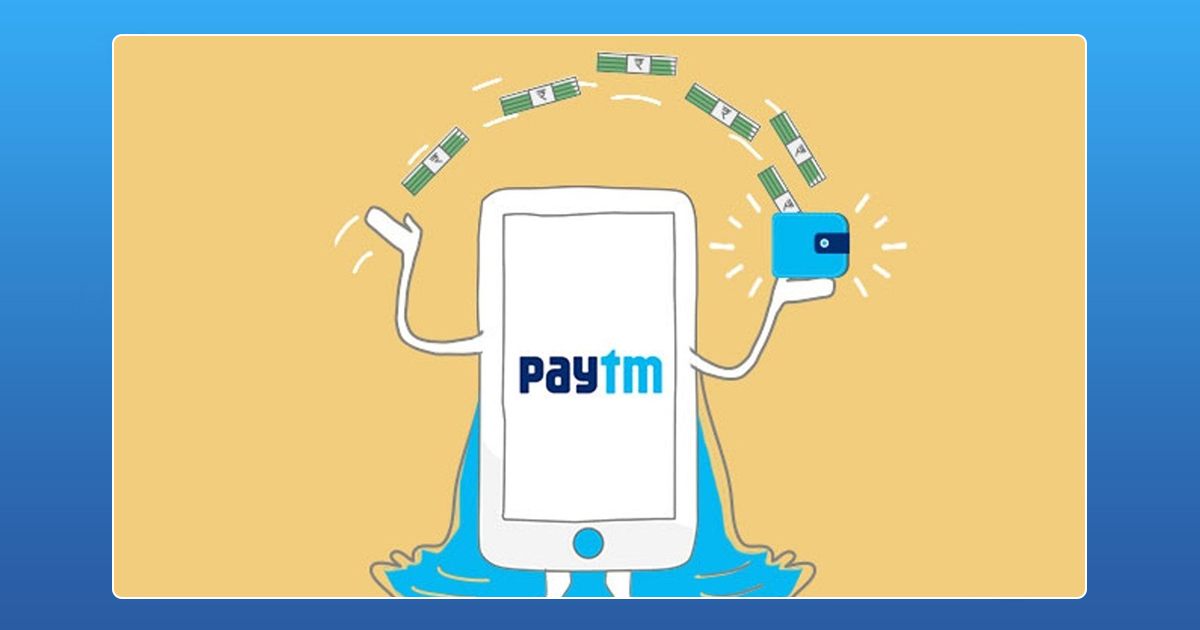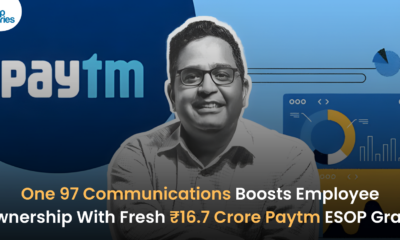Latest News
Paytm Payments Bank To Launch Paytm Debit Card

The financial arm of Paytm, India’s biggest digital payments platform, Paytm Payments Bank is set to launch their own debit card. Paytm founder Vijay Sekhar Sharma took to Facebook to announce the arrival of these RuPay cards.
According to reports, One97 Communications founder Vijay Sekhar Sharma and other existing investors have invested close to $ 9.3 million in the Payments Bank for launching their own ATM cards. The card will let users pay in places where there is no option to pay via Paytm. According to a statement released by Payments Bank, they can now accept customer deposits up to Rs. 1 lakh per customer in both savings and current accounts.
In the documents filed at the Ministry of Corporate Affairs, Paytm Payments Bank said “…the consent of the Board is hereby accorded to issue on a right basis, 6,00,00,000 equity shares of the company of the face value of Rs. 10 to the investor….” The filings also reveal the board approved the issue of the equity shares on July 25, 2017.
In this round of investment, Vijay Sharma invested Rs. 30 crores whereas One97 Communications invested Rs. 23 crores and the remaining amount, close to Rs. 7 crores was invested by One97 Communications India. Sharma will be issued 30.6 million shares as a part of this round of funding while One976 communications has been allotted around 23.4 million shares.
The new Paytm debit card will allow users to shop from rival ecommerce sites or book a cab from aggregators other than Uber using their Paytm money. The Paytm Payments Bank operations were launched earlier this year and is a first mobile bank with zero charges on all online transactions and no minimum balance requirement. The bank received an initial investment of $ 34.2 million at the time of its launch in May. Sharma is the majority shareholder of the Nodia headquartered firm, while Alibaba backed One97 Communications holds the rest of the shares. The new debit card, as per their website, will also include a free insurance cover of up to $ 3,116, close to Rs. 2 lakhs, in the incident of death or permanent total disability.
Latest News
Peak XV New Funds: $1.3B Commitment for India Startup Surge 2026

Peak XV Partners has launched three new funds totaling $1.3 billion, targeting India’s booming startup ecosystem. The lineup features the $600M Surge fund (8th edition) for early-stage ventures, a $300M Growth Fund for Series B+ scaling, and a $400M Acceleration Fund for rapid portfolio expansion. This commitment arrives as India’s VC inflows rebound, with AI and fintech leading 2026 trends.
These funds build on Peak XV’s legacy of backing unicorns like Zomato and Pine Labs, offering founders capital plus strategic guidance amid post-winter recovery. Early-stage deals surged 20% last year per Tracxn, positioning Peak XV to fuel the next wave of innovation in SaaS, climate tech, and consumer plays.
For startups eyeing Peak XV new funds or Surge fund 2026 applications, this signals prime opportunities. Investors and marketers should watch for deployment updates India remains a global VC hotspot.
Latest News
D2C Brand Neeman’s Raises $4 Million for Tier 2/3 Store Expansion & Eco-Friendly Shoes

Hyderabad, January 13, 2026 Neeman’s, India’s leading D2C footwear brand famed for sustainable shoes and patented PIXLL® technology, has raised $4 million from existing investors. This funding boosts its cumulative capital past $10 million since 2015, with a post-money valuation nearing $50 million. CEO Vijay Chahoria emphasized offline retail as the “next frontier,” planning 50+ new stores in Tier 2/3 cities like Jaipur and Lucknow to blend eco-friendly innovation with hands-on customer experiences.
In India’s booming D2C ecosystem where footwear sales hit ₹1.2 lakh crore in 2025 Neeman’s targets hybrid retail amid high online CAC and 25-30% returns. Backed by vegan, machine-washable shoes priced ₹2,000-4,000, the brand leverages PIXLL® (5x more breathable than leather) for carbon-neutral comfort. Recent 5x revenue growth to ₹100 crore ARR, 1M+ pairs sold via Myntra and stores, and awards at India D2C Summit 2025 position it ahead of rivals like Paaduks.
Neeman’s offline expansion India eyes the $15B sustainable footwear market by 2028, fueled by PLI schemes, Gen Z’s 70% eco-preference (Nielsen), and Southeast Asia exports. Challenges like real estate costs are offset by data-driven inventory and omnichannel QR tech. Watch for Q1 2026 launches in Hyderabad and Bengaluru redefining D2C success through authentic, “Wear the Change” branding.
Latest News
Centre Mulls Revoking X’s Safe Harbour Over Grok Misuse

The Centre is weighing the option of revoking X’s safe harbour status in India after its AI chatbot Grok was allegedly misused to generate and circulate obscene and sexually explicit content, including material seemingly involving minors. The IT Ministry has already issued a notice to X, directing the platform to remove unlawful content, fix Grok’s safeguards, act against violators, and submit a detailed compliance report within a tight deadline. If the government finds X’s response inadequate, it could argue that the platform has failed to meet due‑diligence standards under Indian law, opening the door to harsher action.
Under Section 79 of the IT Act, safe harbour protects intermediaries like X from being held directly liable for user‑generated content, provided they follow due‑diligence rules and promptly act on legal takedown orders. Revoking this protection would mean X and its officers could be exposed to criminal and civil liability for obscene, unlawful, or harmful content that remains on the platform, including AI‑generated images from Grok. This prospect significantly raises X’s compliance risk in India and could force tighter moderation, stricter AI controls, and more aggressive removal of flagged posts.
The Grok episode also spotlights the regulatory grey zone around generative AI, where tools can create harmful content at scale even without traditional user uploads. Policymakers are increasingly questioning whether AI outputs should still enjoy the same intermediary protections as conventional user posts, especially when they involve women and children. How the government ultimately proceeds against X over Grok misuse could set a precedent for AI accountability, platform responsibility, and safe harbour interpretation in India’s fast‑evolving digital ecosystem.













谷歌站群
November 6, 2025 at 4:15 pm
专业构建与管理谷歌站群网络,助力品牌实现全域流量的强势增长。谷歌站群
J88
November 8, 2025 at 4:41 am
Đến với J88, bạn sẽ được trải nghiệm dịch vụ cá cược chuyên nghiệp cùng hàng ngàn sự kiện khuyến mãi độc quyền.
谷歌外推
November 10, 2025 at 8:55 pm
采用高效谷歌外推策略,快速提升网站在搜索引擎中的可见性与权重。谷歌外推
MM88
November 11, 2025 at 5:23 am
Với giao diện mượt mà và ưu đãi hấp dẫn, MM88 là lựa chọn lý tưởng cho các tín đồ giải trí trực tuyến.
Kuwin
November 12, 2025 at 8:47 pm
kuwin sở hữu kho game đa dạng từ slot đến trò chơi bài đổi thưởng, mang đến cho bạn những giây phút giải trí tuyệt vời.
iwin
November 17, 2025 at 9:41 am
iwin – nền tảng game bài đổi thưởng uy tín, nơi bạn có thể thử vận may và tận hưởng nhiều tựa game hấp
GO88
November 30, 2025 at 3:33 am
Tham gia cộng đồng game thủ tại Go88 để trải nghiệm các trò chơi bài, poker phổ biến nhất hiện nay.